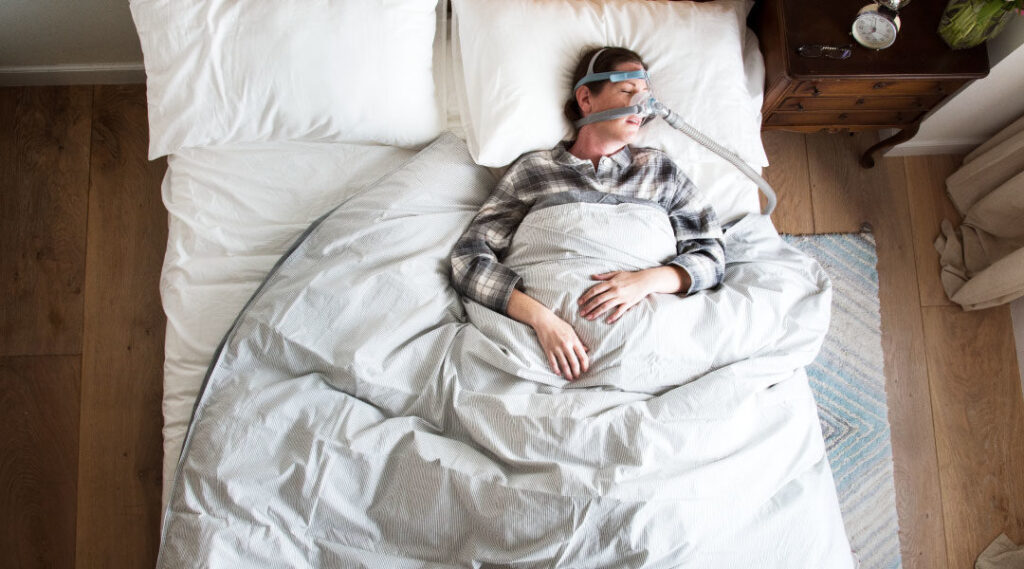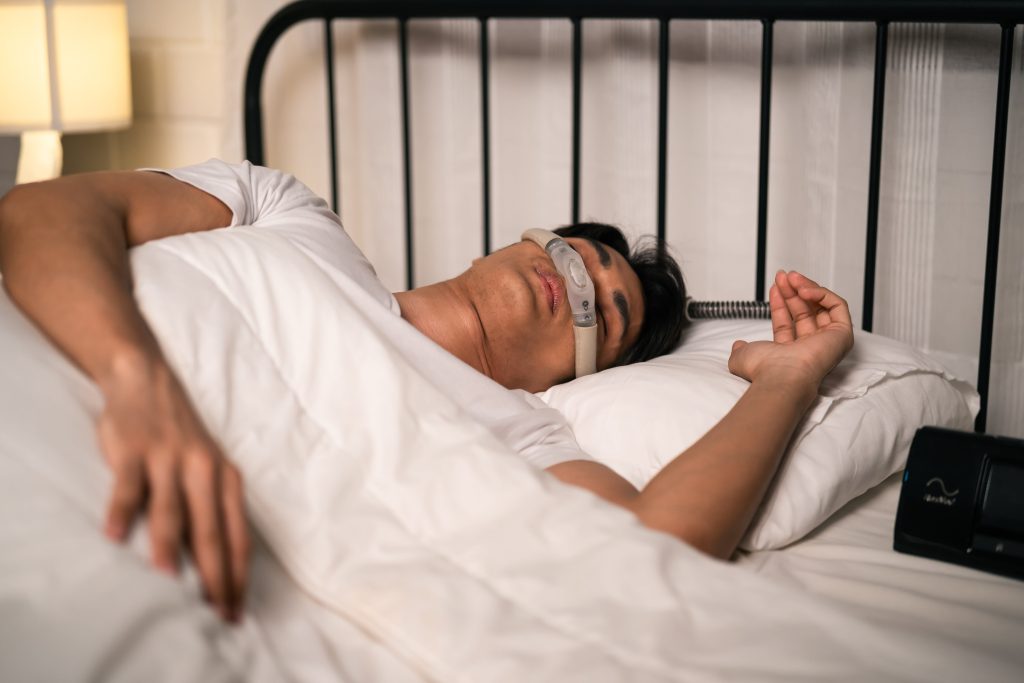The city of Rockhampton, located in Queensland, Australia, is known for its vibrant culture and bustling lifestyle. However, amidst the hustle and bustle, many people in Rockhampton suffer from sleep-related issues that can significantly impact their overall well-being. This article aims to shed light on the importance of sleep, the process of a sleep study, common sleep disorders in Rockhampton, factors affecting sleep patterns, and strategies to improve sleep quality.
Understanding the Importance of Sleep
Getting a good night’s sleep is vital for maintaining overall health and well-being. Sleep plays a crucial role in various aspects of our lives, including physical, cognitive, and emotional functions. A lack of quality sleep can lead to a myriad of health problems and can diminish the quality of life.
Experts recommend that adults aim for 7-9 hours of sleep each night to reap the full benefits of rest. During sleep, the body undergoes essential processes such as tissue repair, muscle growth, and the release of growth hormones. Additionally, the brain consolidates memories and processes information gathered throughout the day, contributing to improved cognitive function and overall mental well-being.
If you are experiencing sleep-related issues in Rockhampton, a sleep study rockhampton can be a valuable diagnostic tool. It involves spending a night or several nights in a specialized sleep clinic, where your sleep patterns and behaviors are monitored and recorded.
The Role of Sleep in Overall Health
Quality sleep is essential for maintaining a healthy immune system, regulating hormones, and supporting brain function. It helps in consolidating memories and promoting optimal cognitive performance. Sleep also plays a significant role in regulating mood and emotional well-being.
Furthermore, sleep is closely linked to weight management and metabolism. Lack of sleep can disrupt the balance of hunger hormones, leading to increased appetite and a higher likelihood of weight gain. Adequate sleep, on the other hand, supports the body’s metabolic processes and contributes to a healthier weight.
The Consequences of Poor Sleep
On the other hand, inadequate or poor-quality sleep can have detrimental effects on our health. Chronic sleep deprivation can increase the risk of developing chronic conditions such as obesity, diabetes, cardiovascular diseases, and mental health disorders.
In today’s fast-paced world, many individuals struggle to prioritize sleep amidst work, social obligations, and screen time. However, understanding the profound impact of sleep on overall health and well-being is crucial for making informed choices and establishing healthy sleep habits. By valuing and prioritizing sleep, individuals can enhance their quality of life and reduce the risk of various health complications in the long run.

The Process of a Sleep Study
When you arrive at the sleep clinic for your study, you will be greeted by the staff who will guide you through the process. The room where you will spend the night is designed to be cozy and conducive to sleep, helping you feel as relaxed as possible for the monitoring ahead. Learn more about Sleep Study Launceston: Analysing Sleep Patterns in Launceston click at https://raydianceforwomen.com/sleep-study-launceston-analysing-sleep-patterns-in-launceston/.
What to Expect During a Sleep Study
During a sleep study, you will be asked to arrive at the clinic in the evening. The sleep technician will attach various sensors to your body to monitor your brain activity, breathing patterns, heart rate, and movement during sleep. You will then be given a comfortable bed to sleep on while the monitoring equipment records your sleep data.
The sensors used during the study are painless and non-invasive, ensuring that your sleep is not disrupted. These sensors provide valuable information to the technicians, allowing them to gain a comprehensive understanding of your sleep patterns and any potential issues that may be affecting your rest.
Interpreting Sleep Study Results
After the sleep study, the collected data will be analyzed by trained professionals. They will assess your sleep patterns, identify any abnormalities, and provide insights into the potential causes of your sleep problems. This information can be instrumental in designing an effective treatment plan tailored to your specific needs.
It’s important to follow up with your healthcare provider after the sleep study to discuss the results and recommendations. By working together, you can address any sleep issues you may have and improve the quality of your rest, leading to better overall health and well-being.
Common Sleep Disorders in Rockhampton
Rockhampton, like any other city, has its fair share of individuals who suffer from sleep disorders. Two prevalent sleep disorders in the region are insomnia and sleep apnea.
Living in a bustling city like Rockhampton can contribute to the development of sleep disorders due to factors such as noise pollution, work-related stress, and irregular sleep schedules. These issues can exacerbate existing sleep problems or even trigger new ones, leading to a higher prevalence of conditions like insomnia and sleep apnea among the city’s residents.
Insomnia and Its Impact
Insomnia is characterized by difficulty falling asleep, staying asleep, or experiencing non-restorative sleep. It can lead to daytime fatigue, lack of concentration, and reduced productivity. Addressing the underlying causes of insomnia is crucial for improving sleep quality.
Individuals in Rockhampton facing insomnia may find it challenging to unwind after a long day, as the city’s vibrant nightlife and constant activity can disrupt their natural sleep-wake cycles. Factors such as excessive screen time before bed, irregular meal times, and high levels of stress can further contribute to the development and persistence of insomnia in residents of Rockhampton. Learn more about excessive screen time visit at https://www.ncbi.nlm.nih.gov/pmc/articles/PMC10353947/.
Sleep Apnea and Its Risks
Sleep apnea is a sleep disorder characterized by frequent pauses in breathing during sleep. This condition can lead to loud snoring, disturbed sleep, and excessive daytime sleepiness. Untreated sleep apnea can increase the risk of developing cardiovascular diseases and other serious health problems.
In Rockhampton, the prevalence of sleep apnea may be influenced by factors such as the city’s climate and air quality. High humidity levels and poor air circulation in certain areas of Rockhampton can exacerbate breathing difficulties during sleep, potentially worsening the symptoms of sleep apnea for affected individuals. Additionally, lifestyle factors like smoking, which is more common in urban environments, can also contribute to the development and progression of sleep apnea in Rockhampton’s population. Learn more about smoking click here.
Factors Affecting Sleep Patterns in Rockhampton
Various factors can influence sleep patterns in Rockhampton, including environmental factors and lifestyle choices.
Rockhampton, a city known for its warm climate and vibrant community, offers a unique setting for exploring the intricacies of sleep patterns. Beyond the typical factors that affect sleep, such as noise levels and temperature, Rockhampton’s tropical climate can also play a role. The humidity and heat characteristic of the region may impact how residents experience sleep, leading to potential challenges in achieving restful nights.
Environmental Factors
The noise level, temperature, lighting, and comfort of the sleep environment can significantly impact the quality of sleep. Ensuring a quiet, cool, and comfortable sleep environment can contribute to better sleep.
Moreover, Rockhampton’s proximity to nature and outdoor recreational activities may influence sleep patterns. Residents who engage in outdoor pursuits, such as bushwalking or beach outings, may find that their exposure to natural light and physical exertion positively impacts their sleep quality. Conversely, those who lead more sedentary lifestyles may need to explore alternative methods to promote restful sleep.
Lifestyle and Sleep Quality
Lifestyle choices, such as irregular sleep schedules, excessive caffeine intake, lack of physical activity, and high-stress levels, can disrupt sleep patterns. Adopting healthier lifestyle habits can improve sleep quality over time.
Furthermore, Rockhampton’s cultural events and social gatherings may also influence sleep patterns. Late-night festivities or community celebrations can lead to disruptions in regular sleep routines, affecting overall sleep quality. Finding a balance between engaging in social activities and prioritizing rest is essential for residents seeking to optimize their sleep patterns in this dynamic city.
Improving Sleep Quality in Rockhampton
Fortunately, there are strategies and interventions available to improve sleep quality in Rockhampton.
Rockhampton, a charming city nestled in the heart of Queensland, Australia, is known for its vibrant culture and bustling community. However, amidst the hustle and bustle of daily life, many residents may find themselves struggling to get a good night’s sleep. Whether it’s due to stress, environmental factors, or underlying health conditions, poor sleep can have a significant impact on overall well-being.
Sleep Hygiene Tips
Sleep hygiene refers to the practices and habits that promote quality sleep. Establishing a consistent sleep schedule, creating a relaxing bedtime routine, avoiding stimulating activities before bed, and creating a comfortable sleep environment are all essential aspects of good sleep hygiene.
Additionally, incorporating relaxation techniques such as mindfulness meditation or gentle yoga before bedtime can help calm the mind and prepare the body for restful sleep. Limiting screen time and exposure to blue light from electronic devices in the hours leading up to bedtime can also support the body’s natural sleep-wake cycle, promoting a deeper and more restorative slumber.

Medical Interventions for Better Sleep
In some cases, medical interventions may be necessary to address underlying sleep disorders. Treatment options can include cognitive-behavioral therapy for insomnia, continuous positive airway pressure (CPAP) therapy for sleep apnea, and medication for specific sleep disorders. Consulting with a sleep specialist can help determine the most suitable intervention for your individual needs.
Furthermore, exploring alternative therapies such as acupuncture, aromatherapy, or herbal supplements under the guidance of a healthcare provider may offer additional support in improving sleep quality naturally. It’s essential to address any concerns or persistent sleep issues with a healthcare professional to receive personalized recommendations and tailored treatment plans.
By prioritizing sleep and seeking proper evaluation and treatment, individuals in Rockhampton can improve their sleep patterns and overall well-being. A sleep study can serve as a crucial step toward identifying and addressing any underlying sleep issues, paving the way for a healthier and more restful future.

